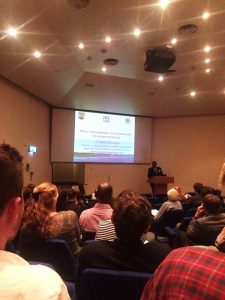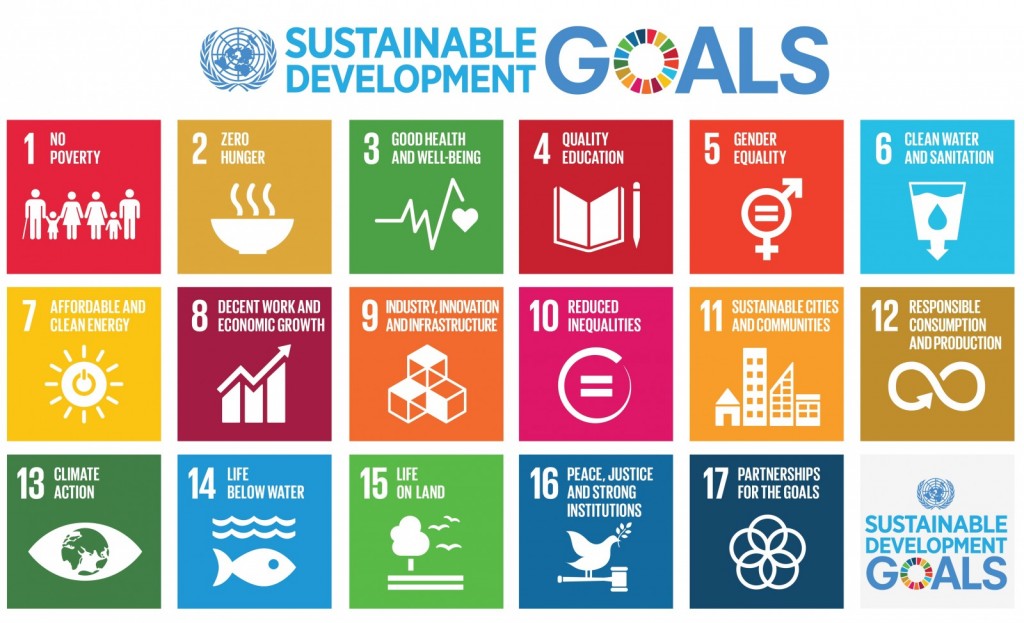
Figure 1. Image of Dr Callist Tindimugaya from the Ministry of Water, Uganda. Dr Callist presented the 2017 Ineson lecture. He is a key figure in Africa achieving the sustainable development goals for 2017.
Africa faces a range of groundwater and development issues such as a lack of groundwater data, rising populations and urbanisation. On the 25th October Charlotte Copley attended the joint meeting of the International Association of Hydrogeologists (IAH) and the Hydrogeological Group of the Geological Society, which included the Ineson Lecture at the Geological Society of London.
With only two hydrogeology lectures on my back and a very limited knowledge of Africa, I found the experience of being at this meeting to be truly mesmerising and it has widened my thoughts on what we can do to help Africa be on its way to achieving the 17 UN Sustainable Development Goals. The day consisted of five lectures, each on a range of issues surrounding Africa and its water supply, a debate on the theme “Each time an NGO, charity or private company constructs a water well or borehole for community water supply, they should be required to pay a small levy to Government to cover the costs of the groundwater monitoring and governance activities undertaken by the relevant public sector organisations” and a panel discussion on the Sustainable Development Goals in Africa.
This blog focuses on the lecture I found to be the most informative as a whole on the current issues Africa faces. This lecture was given by Dan Lapworth from the British Geological Survey and was titled “Urban groundwater & groundwater quality in Africa”. The general message received from this lecture was that groundwater in Africa is a resource we cannot afford to overlook due to rapidly rising populations, urbanisation and changing behaviours in terms of water usage.
Some areas of Africa have the highest population growth globally!
The population in Africa is a growing, low income, urban population, where it is estimated that there will be 6,000 cities in West Africa by 2020, where Nigeria is a hotspot.
Africa has a huge freshwater resource that is quite shallow, making it fairly accessible. This poses a real potential for future development especially as there are moderate to high productivity aquifers in most places. Deeper and better sources that are more protected from these challenges are also currently underutilised.
The current national groundwater use in Africa is around 10-50%
Dan shared the main issues with the water supply in Africa. The points given below show how far behind Africa is in water treatment technology, highlighting the lack of people being trained in this field and how little advancement in this industry has occurred in Africa. The key water quality challenges that Africa faces are vast; some of these include:
- Faecal waste management contamination of shallow water systems
- Geogenic contaminations (i.e. Arsenic and Fluoride)
- Hydrocarbons and organic contaminants are present in urban areas
- Legacy contaminations from industry
- There is limited treatment, even for municipal sources
The key water supply and health challenges that Africa faces include:
- Water access in low income areas is wholly inaccurate
- Piped or kiosk water is not affordable, alternative high risk sources are used
- There is a higher risk from faecal contamination during flooding/shallow groundwater conditions
- Augmented self-supply is common for both high and low income groups
The current trend in Africa is that the majority of households own their own borehole, with 51% of households in Nigeria owning their own borehole, 36% of households share a borehole and only 33% accessing a public water supply.
It was clear to see from this lecture that Africa is behind with water supply and quality; major changes and advancements need to be made for the UN Sustainable Development Goals to be achieved by 2030. With groundwater demands set to increase in future, this problem needs to be addressed and action needs to be taken.
For this to happen Africa needs to prepare for a groundwater revolution. This needs to begin with the government introducing education schemes, teaching future generations the importance of having a good and continuous supply of water and how this affects health and gender equality. Local water supplies in villages also needs to be improved, by maintaining and monitoring the wells that have been put in place by outside organisations. More data points are needed on aquifer location, characteristics, ground water quality and how the groundwater levels fluctuate in response to seasonal and inter-annual recharge, along with long term pumping. Further to this, more resources of water in Africa need to be utilised, especially deep water resources that are less prone to contamination.
Through projects such as UPGro and GroFutures, this can be achieved. Given time, awareness can be raised in communities of the importance on the future pathway of Africa’s water supply!

Take home message: Water is key to improving the lives of Africa’s ever growing population. It is currently seen as the women’s job to collect water, however, with the instalment of taps in villages, providing a clean, reliable water supply, women can have the opportunity to be educated, which will improve gender equality. If the role of water is introduced into education, people will learn about the issues regarding unsanitary supplies, health will improve as people become more informed. Water is the key for life and no human can survive without it, it needs to stop being a neglected subject and be at the forefront of the development in Africa.
 Written by: Charlotte Copley, Third Year Undergraduate Geology Student, University of Liverpool
Written by: Charlotte Copley, Third Year Undergraduate Geology Student, University of Liverpool
